Ottolenghi: Inside the mind (and kitchen) of the genius chef, who is bound for Australia
Celebrity chefs come and go but few have changed the way we want to eat like Yotam Ottolenghi. Ahead of his Australian tour, he reveals his greatest satisfaction.
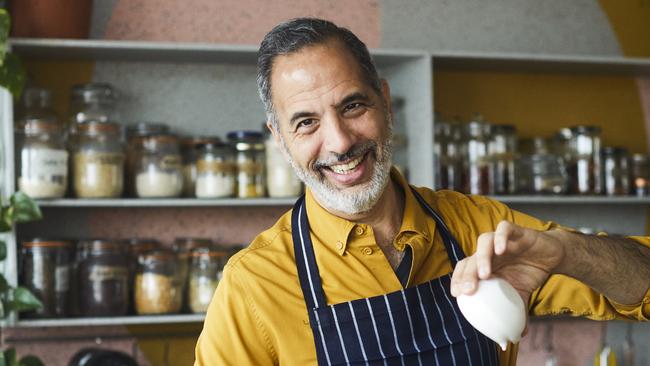
SA Weekend
Don't miss out on the headlines from SA Weekend. Followed categories will be added to My News.
His name is synonymous with tahini, sumac and preserved lemon; with mountainous saladscapes and heroic dinner table veg. Celebrity chefs come and go but few can lay claim to changing the way people want to eat like Yotam Ottolenghi. Even fewer can claim their own verb (“Ottolenghify”).
But Ottolenghi is more than the sum of his ingredients. The Israeli-British chef and TV personality is the father of two young boys with his husband of 10 years, Karl Allen; lived a previous life as an academic and journalist (he studied literature and philosophy at Tel Aviv University) and, while born and raised in Israel, has Italian and German ancestry.
He took regular pottery classes with Nigella Lawson (“I have a few pots here and there that I’ve made”); has a simple coffee order (“flat white, ordinary cow’s milk!”) and is a confessed chocoholic (“I have quite a lot of chocolate bars and my kids are not allowed access to them”.) His humility is the founding pillar of an overwhelmingly likeable spirit that seems to resonate across cultures and continents.
Now, Australians will experience the phenomena first-hand at his new live show, Yotam Ottolenghi: Flavour of Life. It’s a long time coming for many ticketholders, the show postponed twice as a result of the pandemic.
“This time it is happening,” says Ottolenghi, 53, from his North London home. “We’re working with a software app so we can interact with the audience; I’ll be doing a bit of cooking with the guidance of the audience. So the event is not just going to be about conversation but also a bit of fun and funny.”
Ottolenghi’s January tour will see his first visit to South Australia, Perth and Canberra. Previous book tours – and a guest appearance on MasterChef Australia in 2017 – have brought him to Sydney, Melbourne, Brisbane and Tasmania, but visits are typically short.
“I always come to Australia and say, ‘next time I’ll come on a proper holiday’, but in fact I’ve always been for work,” he says. “I think when the kids are slightly older, we’ll come for one Christmas break; one summer. “I’m so impressed by the quality of the restaurants – everything from modern Australian food to restaurants that fuse different cultures of immigrants.”
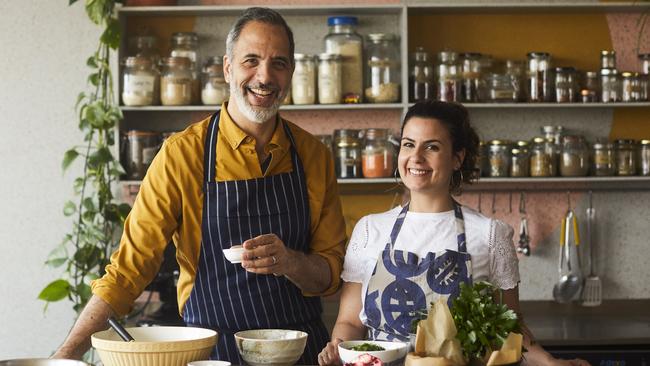
Ottolenghi’s popularity is no flash in the pan. Since opening his first deli in London’s Notting Hill 20 years ago, he has published 10 cookbooks – many co-authored with friends and Ottolenghi Test Kitchen colleagues; starred in food travel shows and championed Middle Eastern ingredients to the mainstream. His cookbook sales have exceeded one million in Australia – outselling Nigella Lawson – and that’s set to increase, with the release of his new cookbook, Ottolenghi Test Kitchen: Extra Good Things.
But why have Australians been swept up by The Ottolenghi Effect?
Food writer and former MasterChef Australia judge Matt Preston says, “As well as being a generous, beautiful human, Ottolenghi’s sunny food is packed with flavours that resonate with Australia, whether it’s the use of familiar ingredients like yoghurt, cumin and roasted vegetables, or lesser-known gems like dried limes or a condiment like daqa.”
Penguin Random House Australia’s Kate Hoy, meanwhile, says the chef’s rise to fame coincided with Australians’ desire to “seek out the new: new flavours, new ingredients and new personalities”. “Even our major supermarket chains rushed to stock the Ottolenghi ingredients: pomegranate concentrate, ras el hanout and nigella seeds,” she says.
Unlike some high-profile professional cooks – think, Jamie Oliver and Nigella Lawson – Ottolenghi has managed to keep much of his private life out of the public eye. He put his heart to paper when he penned a first-person piece in 2013, on coming out as a “gay father”: he has two sons, Max, aged 10, and Flynn, 7, conceived via surrogate. He says being a dad is “better than I imagined”.
“It’s so nice,” he says. “I feel very lucky to have two beautiful boys and all I want to do is spend time with them. That’s why when I come to Australia and New Zealand and people say, ‘why don’t you spend another week and have a nice holiday?’ I’m like, no, I’m coming for 10 days and then I’m leaving because I don’t want to not see my kids.
“It (parenthood) opens up so much for you in yourself, but also in the outside world when you see it through their eyes. The silliest things like games and comics and silly TV – when you see it through your children’s eyes, it gets another dimension. We go to Chinatown and have dim sum; we go to a place called Epping Forest where we go for a walk and they (the boys) build dens … I think as a general rule it’s better, as long as it is safe, to let them set the agenda because they’re so curious and they can find something exciting to do, even if you’re not leading them.”
While it’s early days, the boys aren’t showing signs of filling their chef dad’s shoes just yet (“Flynn is a very keen skateboarder … and Max is a big reader and likes sciences”). And when it comes to mealtimes, they’re still, well, kids.
“Most nights, they would eat things kids like,” Ottolenghi says.
“But we don’t go for the lowest common denominator. Of course, they sometimes have pasta with tomato sauce and cheese, which, you know, who doesn’t like? But we always try to have something richer; something more interesting there. It’s a process with ups
and downs.
“I have to say now that they are 7 and 10, they kind of eat almost anything ingredient-wise, but it’s about how it’s done. They will eat something as long as it doesn’t sit with a million other things.
“But, we went to Paris for the first time in the summer and they ate snails. That was amazing. On the other hand, at least one of them wouldn’t eat a raw tomato.”
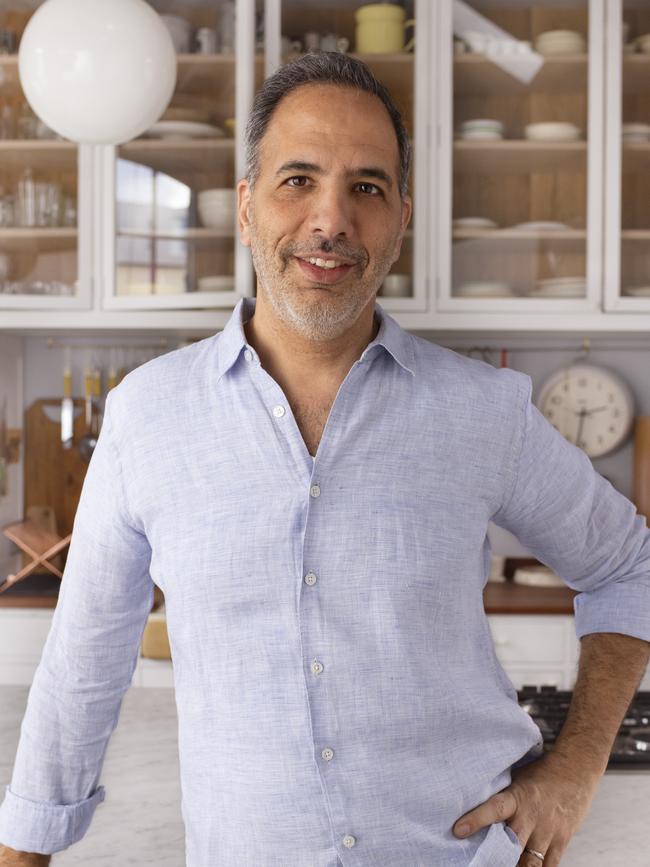

Family bonding time was the silver lining on recent pandemic years, he says. The biggest challenge, of course, was the pandemic’s havoc on hospitality.
“Restaurants all over the world struggled, and ours as well,” says Ottolenghi, who has seven delis and restaurants across London.
“It seemed, for a little while, that who knows – it might never open again. It was hard.
“It (the industry) has definitely bounced back, but we have to deal with a whole new set of problems now.
“We have massive recruitment issues with people not wanting to work in hospitality as they did in the past; we have soaring prices, just like everywhere else in the world – it’s become much more complicated and difficult to operate restaurants.”
For many at home, lockdowns sparked a desire – and necessity – to cook more. Ottolenghi’s two most recent books reflect this shift – OTK: Shelf Love, for example, was about using pantry ingredients.
“People ran their pantries differently during Covid because of the difficulty getting ingredients and the need to put meals on the table three times a day because they couldn’t go out,” Ottolenghi says.

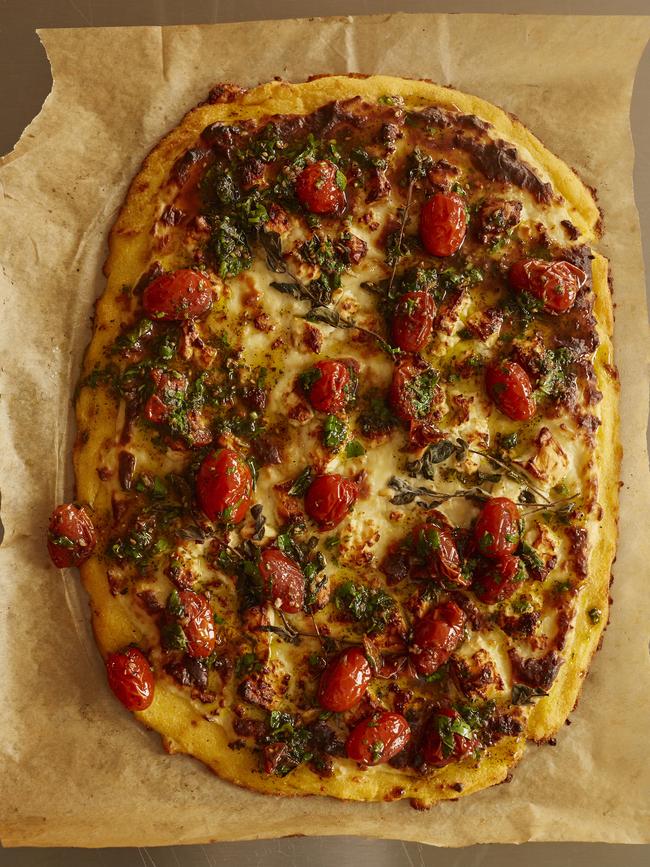
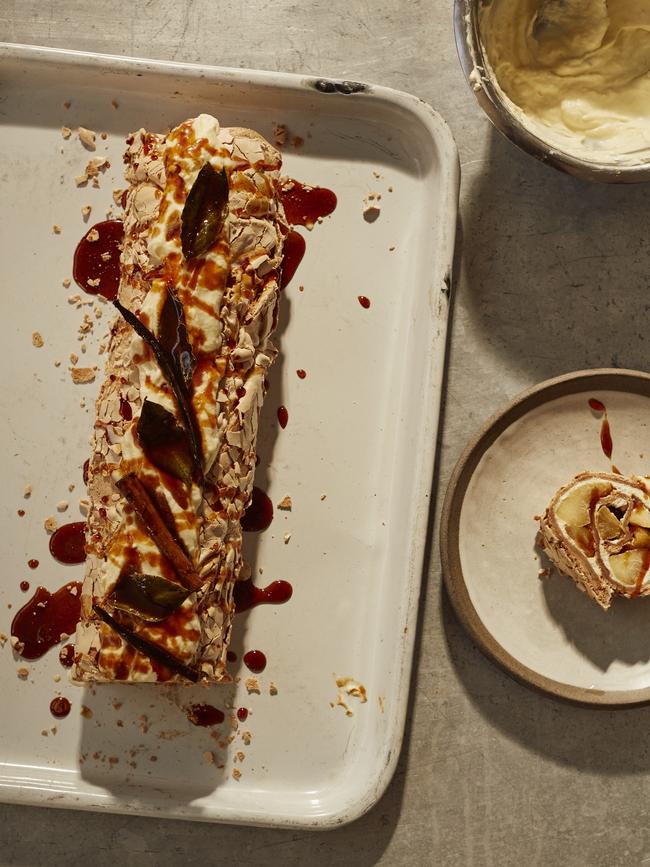
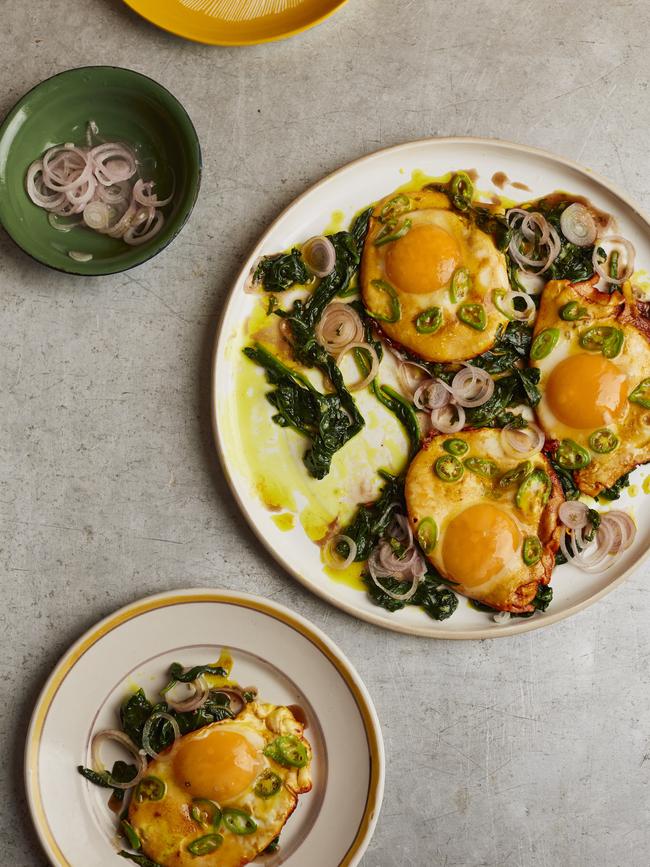
The sequel, OTK: Extra Good Things, co-written with Noor Murad, offers recipes for condiments to elevate – or, “Ottolenghify” – meals. “It sounds pretentious, but it represents the way we talk at work,” he says of the word. “We have a plate of something – rice or couscous or a chicken – and we really need to ‘Ottolenghify’ it.”
As he approaches his 53rd birthday on December 14, Ottolenghi is proud of his achievements. And while recipe books will continue to sell, his greatest satisfaction comes from a single one of his recipes becoming “a staple for a home or family”.
“For me, everything else is transitory,” he says. “Books come and go, newspapers come and go … if someone has a family recipe that sticks, that’s, like, forever.” ■





